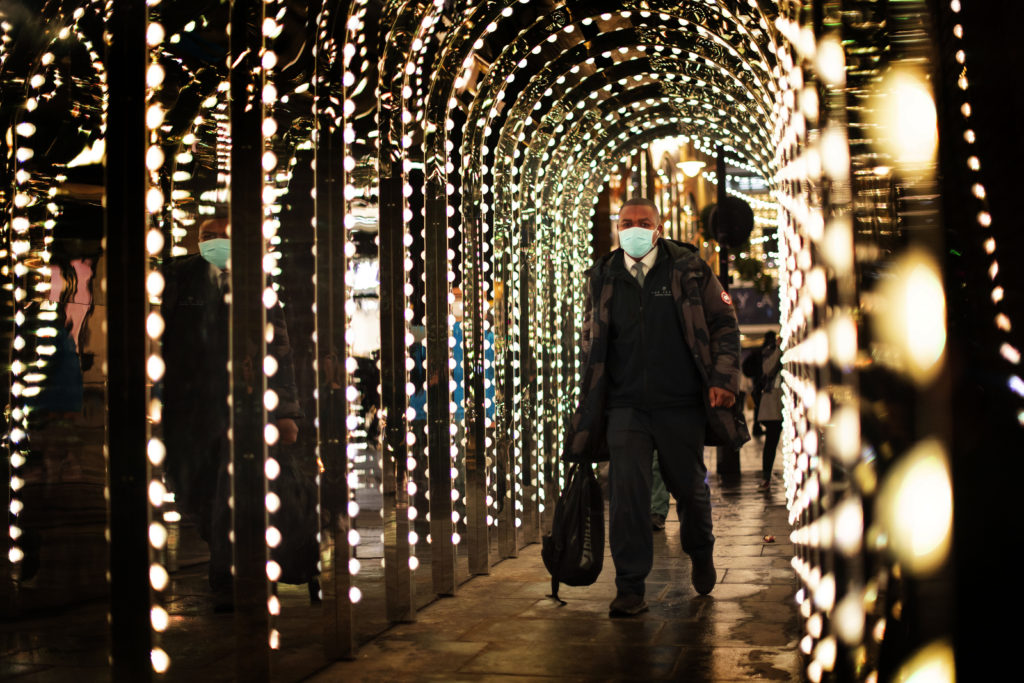As we stand on the brink of 2021, we all wish that flipping over the calendar would somehow banish Covid and bring a fresh start. The coronavirus should stay trapped in 2020 forever.
But we know this will not happen. Cases have been rising again, and the rest of the winter is frankly looking pretty grim. Businesses, especially in the hospitality sector, are struggling to survive repeated closures; jobs and livelihoods are being lost; everyone is weary and demoralised. And then we have the challenges that the end of the Brexit transition will bring.
Politicians are not generally known as bringers of joy, but we do need to offer some kind of hope, to encourage people to hang on for the rollout of the vaccine and the arrival of spring: a renewed call to pull together and a vision of freedoms regained. Such hope may enable us all to wait well, and to emerge more united than divided.
I think we can seek hope in the values of liberalism that underpin our society. We Brits pride ourselves on our civil liberties, but the restrictions placed on our freedoms during the past year have presented a massive challenge.


In October the Lib Dems voted against the extension of the Coronavirus Act. We were concerned that the government wasn’t doing enough to protect carers or those for whom they care. I found myself in the same lobby as a number of Tory MPs who were also voting against the changes, on the grounds of protecting our freedoms. One of them commented: “oh, you Liberals are actually being liberals for once are you?”
This set me thinking about how the divide between libertarianism and liberalism has been highlighted this year. Libertarians want the very minimum of state intervention in people’s lives, so that individuals can make their own choices. If I cannot go to the pub then my freedom is diminished, and for a libertarian, the government should have no right to curb this. It’s the same with paying taxes. A libertarian would say that I should be able to choose how to spend my hard-earned money, without the state taking a chunk of it away from me. But this is a rather shallow and self-centred way of looking at liberty.
A truly liberal perspective views freedom more holistically. We are not all isolated individuals, despite the virus’s best efforts to separate us. We are part of a wider community, but this means our freedoms often compete. Rather than viewing restrictions as primarily an assault on our liberty, liberals recognise that we must make judgements about which freedoms have primacy over others.
This means we support taxation that removes the liberty of people to spend all their money as they choose, because there is a greater liberty that comes from a greater number of people having equal access to high quality education and healthcare. Liberalism acknowledges that if we only possess freedoms in theory but not in practice, these are not really freedoms at all. How can you be free to get a good job, live in a decent home and to receive medical care when you are sick, if you can’t actually access any of these things due to poverty or lack of opportunity?
The same applies with the restrictions to control the virus. Healthworkers’ freedoms are curtailed if they cannot keep people well and treat them for diseases such as cancer because they are overwhelmed by a tyranny of uncontrolled Covid infections. Likewise, my freedom to go to the football, or not to wear a mask, must compete with the freedom of older and more vulnerable people not to catch the virus and die.
At the start of the first lockdown, there was a real sense of community and sacrifice, of clapping for the NHS, painting rainbows in our windows, and a new recognition of the vital work of keyworkers, from stacking supermarket shelves to teaching our children. But as time dragged on, people became worn down, and concerns arose about how our freedoms were being affected by the constant restrictions on our lives.
Now, after a miserable year, when we face a shrunken, shortened Christmas period, and many of us do not feel jolly in the slightest, perhaps we need to look at our freedoms in a different way. Rather than standing on our own liberties, let us recall to our minds the many people who have sacrificed so much defending the freedom of others.
Those who work on the front line in the NHS, care homes and schools; in the jobcentres, supermarkets and foodbanks; and the scientists who have worked so tirelessly to produce vaccines for the virus. We need to draw on the hope that we see in the coming together of communities, which is surely greater than what divides us.
We know that these current restrictions on our lives will soon lift, and this should help us to stay vigilant for now. My dad reminded me the other day of the tragedy of the soldiers who fell in the last hours before the guns were silenced, at the end of the First World War in 1918. We don’t want to be in the same position with our loved ones when we can see the light at the end of the tunnel.
Let’s continue to dig deep, support one another and seek to balance our freedoms against the needs of others as we wait for the arrival of better days.









